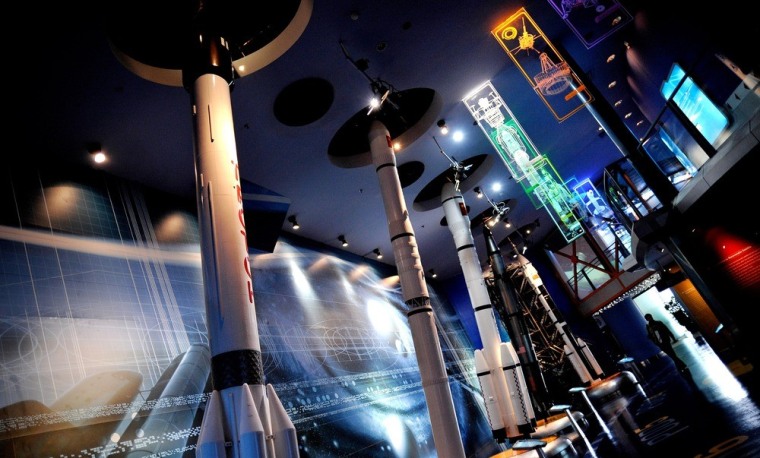A survey of 21,000 people around the world, presented today by the journal Nature and Scientific American, suggests that Americans overwhelmingly trust what scientists have to say about the origins of the universe. The results also suggest that survey respondents from Japan and China are significantly less trusting of scientists, and far more doubtful about the idea that evolution explains the forms and variety of life.
So does that mean America is more in step with science than Japan and China are? Mmm, not really. The reason for that has largely to do with scientific vs. unscientific sampling.This particular survey is based on responses to an online questionnaire by the readers of Scientific American and its translated editions in 18 countries. That's a tip-off that the sampling is not truly representative of the countries' populations, but merely of folks who are predisposed enough toward science to buy the magazine and answer the questions. (Scientific American and Nature are both owned by Macmillan Publishers.)
It may sound impressive to say that 21,000 people participated in the survey, but the participation varied dramatically from country to country. As noted in this Nature News article, thousands upon thousands from the United States and Europe, while just 269 people from China did so.
These same factors — self-selection and unevenly distributed sampling — are why we don't put too much stock in the surveys offered on our own website. Sure, it's entertaining to find out what more than 11,000 people think about the new judges on "American Idol," but when it comes to scientific sampling, the results are about as shaky as Sanjaya's singing.
The question about evolution shows how far off self-selected surveys can get: The Nature/Scientific American survey indicates that only 12.9 percent of the 4,779 American respondents had any doubt about the power of evolutionary theory, including natural selection, to explain the forms and variety of life. In contrast, 34.9 percent of the 1,195 respondents in Japan and 48.7 percent of the 269 respondents in China indicated that they had doubts.
More rigorous surveys tell a dramatically different story: Last year, for example, the Gallup Poll conducted telephone interviews with 1,018 American adults nationwide and found that 39 percent believed in the theory of evolution, 25 percent did not, and 36 percent voiced no opinion either way.
An analysis of surveys from 34 countries, published in 2006 by the journal Science (Nature's competition), shows even more starkly where America stands: The U.S. numbers revealed that 40 percent of respondents thought evolutionary theory was probably or definitely false, compared with 36 percent who thought it was probably or definitely true. Japan's acceptance of evolution, in contrast, was put at 78 percent. The only country that fared worse than the United States in the Science paper's 34-country comparison was Turkey. (China was not on the list.)
Perhaps the most that could be concluded from the Scientific American survey is that the folks buying the magazine (or a foreign-language edition) have a mind-set that's different from the population at large. That's of interest to the editors and advertisers, but maybe not so much to policymakers or policy analysts. As for the differences between countries, cultural and political factors may play a role in how particular questions were answered. (For example, Chinese readers might be more inclined to say that scientists should stay out of politics, whether they truly think so or not.)
The reports published online today by Nature as well as Scientific American go into more depth about attitudes toward science-related issues including stem cell research and climate change as well as evolution education. To my mind, last year's survey conducted by the Pew Research for the People and the Press added much more to the debate over America's science gap than this latest one will. But what do I know? The Scientific American survey, like last year's Pew report, shows conclusively that journalists are far less trusted than scientists.
More on public attitudes toward science:
- NSF: Why 'scientific consensus' fails to persuade
- One-third of Americans back ban on synthetic biology
- Scientists say stem cell uncertainty is delaying research
- Previously in Nature: Science scorned
You can trust me to let you have your say in the comment box below — as long as you keep it classy. Check out my other postings on Cosmic Log, and connect with me via Twitter (@b0yle) or Facebook.
